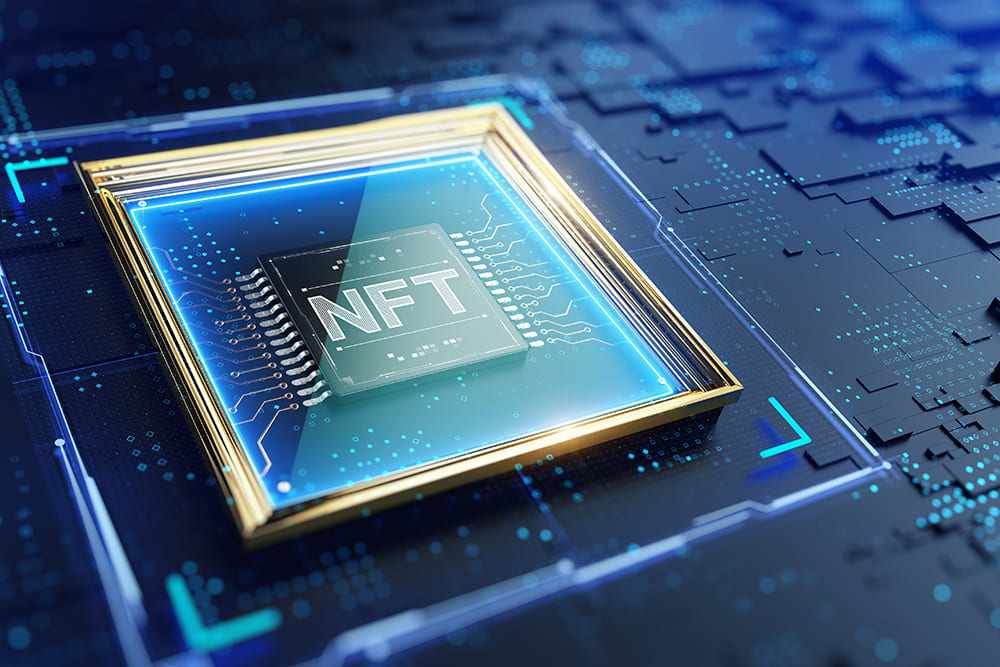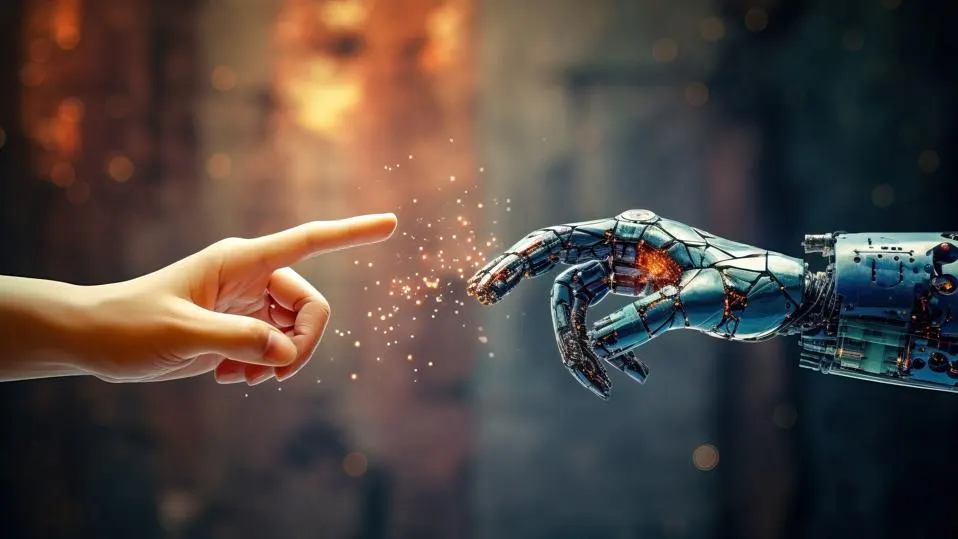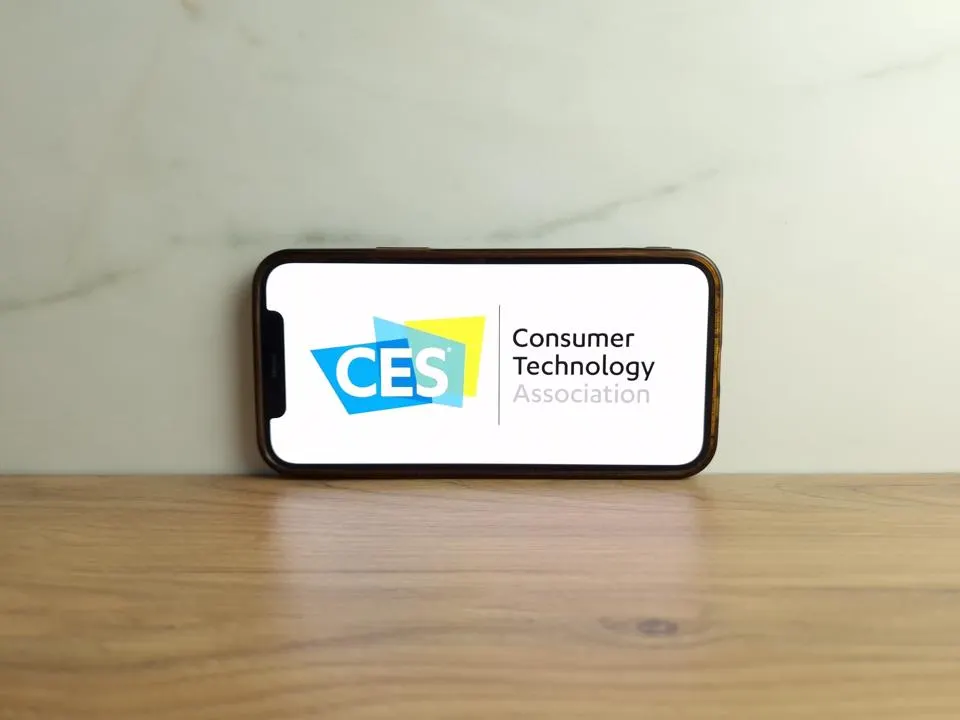The Important Links Between NFTs, Blockchain, And The Metaverse
30 November 2021
If you’ve paid any attention to emerging tech trends over the past year, you will have heard of the metaverse – a term for connected, virtual worlds that is being described as the next iteration of the internet. You’re probably also aware of blockchain and NFTs (non-fungible tokens) – both of which are hot topics right now.

For anyone that does need a primer – current thinking on the “metaverse” is that it is the term for persistent online worlds, where users can have shared experiences, often through virtual or augmented reality interfaces, allowing for richer immersion than existing online services.
But, as with other game-changing applications of technology – artificial intelligence (AI), for example, or the internet of things (IoT) – the metaverse and blockchain are not concepts that have evolved and exist in isolation. Their true potential will be unlocked when they are applied together. Because the fact is they all have many features and functions that complement each other, enabling them to converge in ways that make them more than the sum of their parts!
Virtual currencies
Let’s start with the most obvious use cases for blockchains in the metaverse – money! Blockchains – decentralized, distributed databases secured by encryption – are the foundation of cryptocurrencies like Bitcoin, Litecoin, and Ether (the token of the Ethereum blockchain). The metaverse promises to open up a “Ready Player One” type virtual world, where we can play, work and socialize with our friends in immersive environments without ever leaving our homes. And of course, anyone with any understanding of human nature will predict that one of the most popular activities people are going to want to take part in while they are there is shopping and buying things!
It’s already possible to use the cryptocurrency Mana to buy plots of virtual real estate within the Decentraland online reality – in fact, recently, headlines were made when somebody did just this, to the tune of $2.4 million. As well as land, it will be possible to buy digital versions of just about anything we can buy in the real world, and probably quite a few things we can’t! Governments are even getting in on the action, with Barbados recently using Decentraland to open the world’s first metaverse embassy.
However, buying things is likely to just be the beginning of blockchain-based money in the metaverse. The fast-growing field of decentralized finance (De-Fi) is perfectly suited to operating within virtual worlds and environments, and we can expect to find metaverse-based lending, borrowing, trading, and investing becoming increasingly popular.
Gaming
Gaming will undoubtedly be one of the most exciting use cases for the metaverse, and once again, innovation in this space is being driven by blockchain. The Sandbox is a virtual world where anyone can create their own games and environments and use the Ethereum-based blockchain currency $Sand to buy and sell digital goods and assets. The Sandbox is already home to well-known brands, including Atari and Aardman Animations, creators of Shaun the Sheep.
Crypto gaming is already big business and covers both online casino-style games as well as the more recent gaming paradigm that's become known as "play-to-earn." One of the most popular at the moment is Axie Infinity, in which over a million daily active users train and fight digital creatures, similar to Pokemon. However, it differs from Nintendo’s game in that winners are rewarded with the cryptocurrency SLP, with the best ones said to be making around $250 per day – a significant income in the developing countries where the game is most popular!
Another metaverse game where players can earn cryptocurrency that can be converted to real money is Oneto11, which describes itself as the world’s first blockchain-based gaming ecosystem. Here, players use their sports knowledge to compete against others in order to win the platform’s proprietary blockchain token, also called Oneto11.
If, as everyone from Mark Zuckerberg to tech venture capitalists believe is the case, the metaverse lives up to its hype, we can expect blockchain gaming to explode in the next few years.
NFTs
According to many predictions, NFTs – which stands for Non-fungible tokens and was picked as the word of the year for 2021 by Collins Dictionary – are set to play an important role in the metaverse. Put as simply as possible, NFTs are tokens that live on a blockchain and can be used to prove ownership of connected digital assets. Primarily we've seen them used for trading pieces of digital art, but in theory, they can be connected to anything, including virtual avatars, game assets, and real estate (or should that be unreal estate?)
A key use (quite literally), say some, will be for accessing areas of the metaverse and proving that someone has the right to control who can or can’t visit or use a particular piece of a virtual environment. Many of the blockchain games that will exist in the metaverse will use NFTs, too, as rewards (as an alternative to the other common type of blockchain-dwelling token - cryptocurrencies – which are fungible, and therefore not unique.)
One of the main functions of NFTs within the metaverse will be to assign value to objects. As anything that is digital fundamentally exists only as ones and zeros, it can theoretically be duplicated and distributed an infinite amount of times. NFTs provide a framework for attributing value to digital objects because they can be used to prove that someone is the rightful owner of a particular object.
Decentralization
It’s important to remember that, as with any predictions about the future, much of this is still speculation – because no one’s exactly sure how the metaverse will work just yet. People like Mark Zuckerberg have their own ideas, of course, and are throwing a lot of money into making them a reality. But will the reality be a corporate-controlled, centralized metaverse? Or will we end up with something much more decentralized – much like the concept of blockchain itself? Blockchain, and its capacity to enable smart contracts and decentralized autonomous organizations (DAOs) offer the possibility of alternate digital realities that aren’t under the ownership of Silicon Valley mega-corporations. They can be "owned" by the people who use them and governed by taking part in secure voting processes and utilizing advanced blockchain functions such as staking.
In truth, it’s likely we will end up with something of each – corporations building and maintaining their own metaverses where they make the rules, existing alongside publicly-owned decentralized metaverses. The interesting part will be to see how they play together – will an avatar that's been born and leveled up in a DAO-driven public metaverse be welcome within the walled garden of Mark Zuckerberg’s private metaverse? Who will have the final say over establishing fundamental principles of society, such as identity or property ownership, within the metaverse? These are important questions, and we can be fairly certain that blockchain will have a crucial part to play in establishing the answer.
If you would like to learn more about the rise of virtual and augmented reality, check out my book, Extended Reality in Practice: 100+ Amazing Ways Virtual, Augmented, and Mixed Reality Are Changing Business and Society.
Related Articles
The Metaverse And Its Dark Side: Confronting The Reality Of Virtual Rape
The police in the UK are currently investigating a virtual rape in the metaverse involving a young girl under the age of 16 who[...]
Generative AI (Probably) Won’t Take Your Job. But It Will Change How You Work
When you read or listen to anything about generative AI and its impact on jobs, it's often a story of job losses.[...]
The Biggest Challenges And Pitfalls Of Data-Driven, AI-Enabled HR
Amid the rapid evolution of digital landscapes, data and AI have emerged as critical tools in human resource (HR) management[...]
The Unmissable Highlights From CES 2024
Much like its predecessors, the Consumer Electronics Show (CES) of 2024 has once again dazzled the world with a spectacle of innovation and technological marvels.[...]
5 Unexpected Ways Generative AI May Change Your Daily Life
No doubt you've seen dozens of headlines (or more) about generative AI and how tools like ChatGPT are going to transform our jobs..[...]
Sign up to Stay in Touch!
Bernard Marr is a world-renowned futurist, influencer and thought leader in the fields of business and technology, with a passion for using technology for the good of humanity.
He is a best-selling author of over 20 books, writes a regular column for Forbes and advises and coaches many of the world’s best-known organisations.
He has a combined following of 4 million people across his social media channels and newsletters and was ranked by LinkedIn as one of the top 5 business influencers in the world.
Bernard’s latest book is ‘Generative AI in Practice’.










Social Media